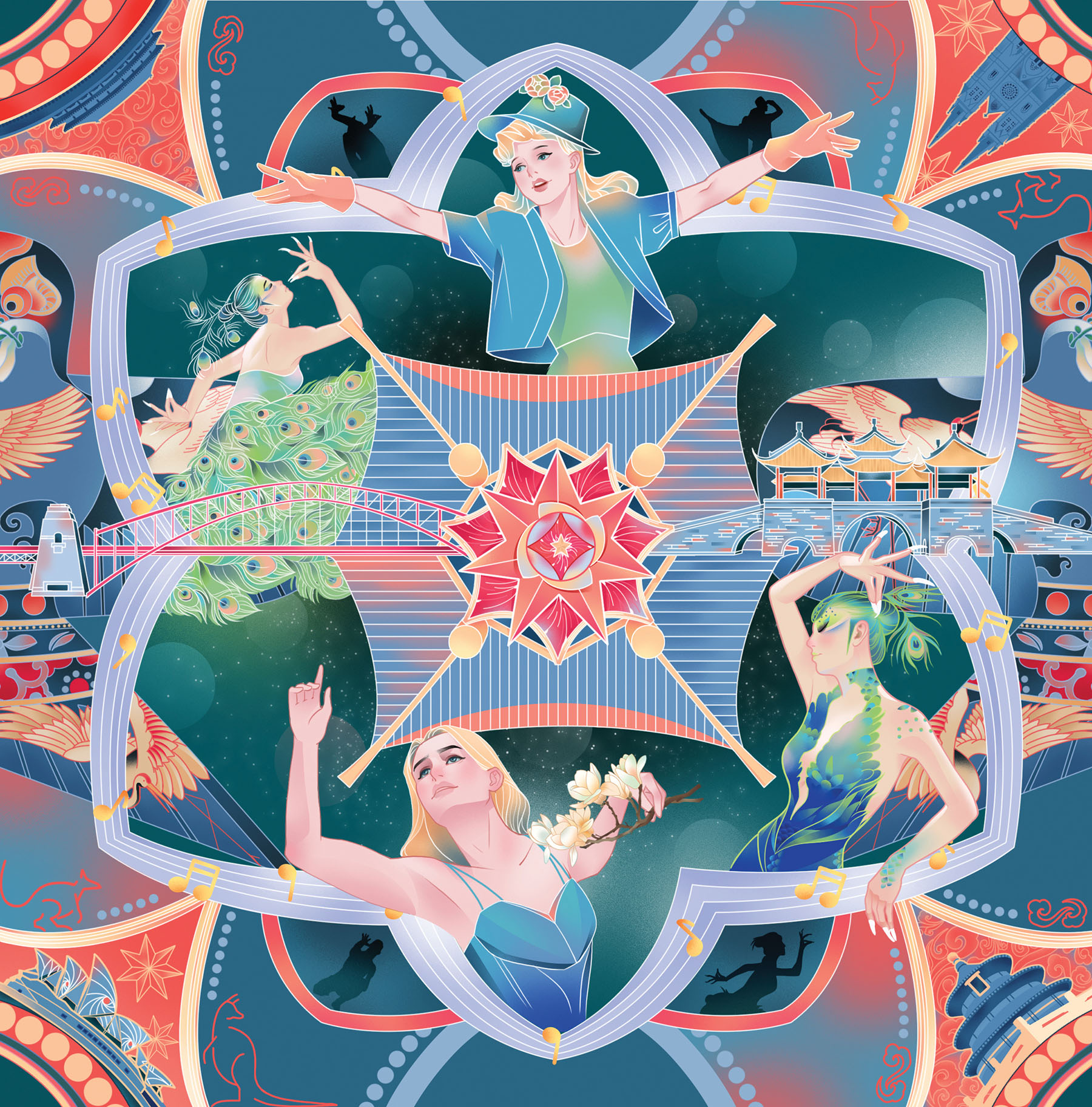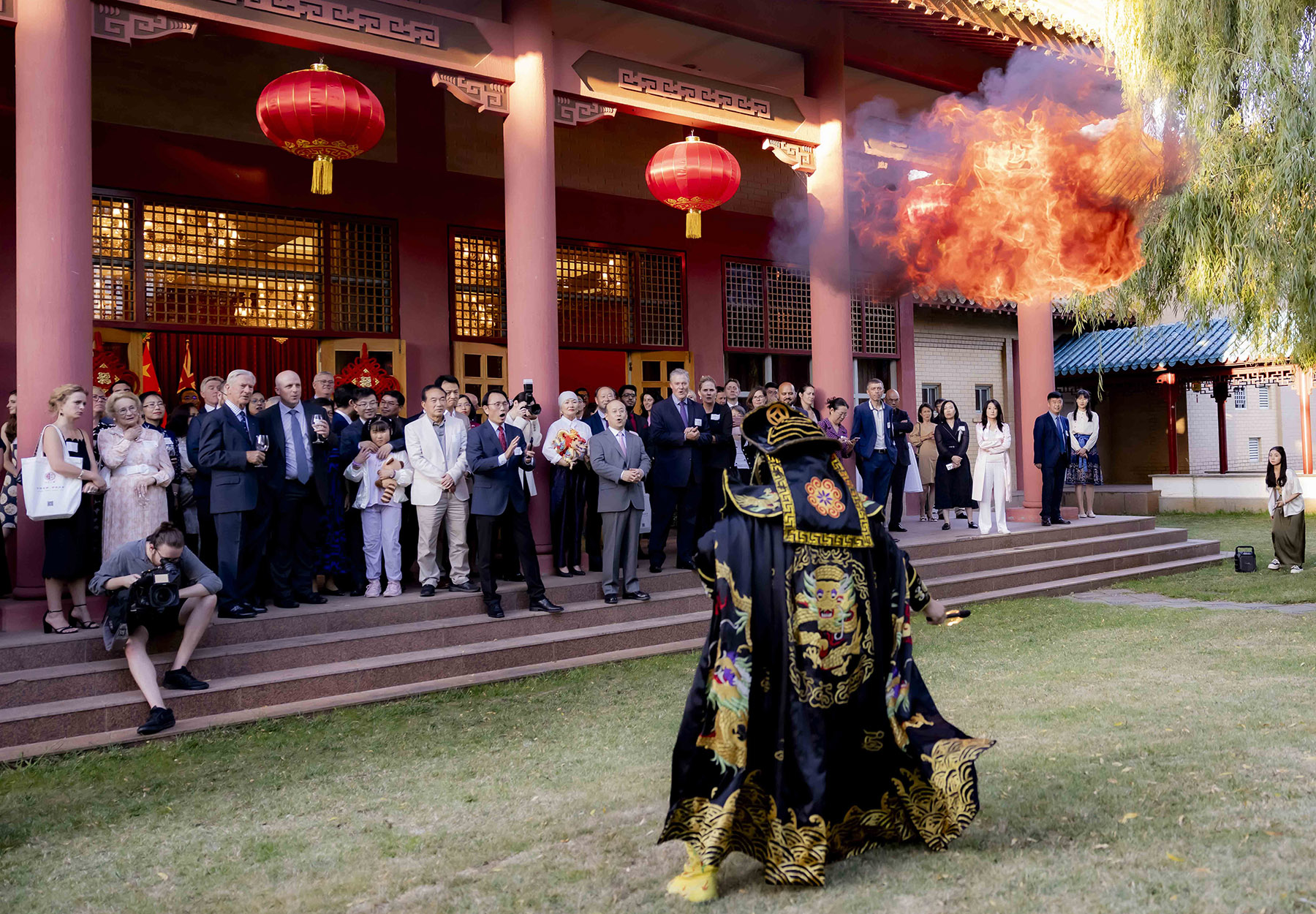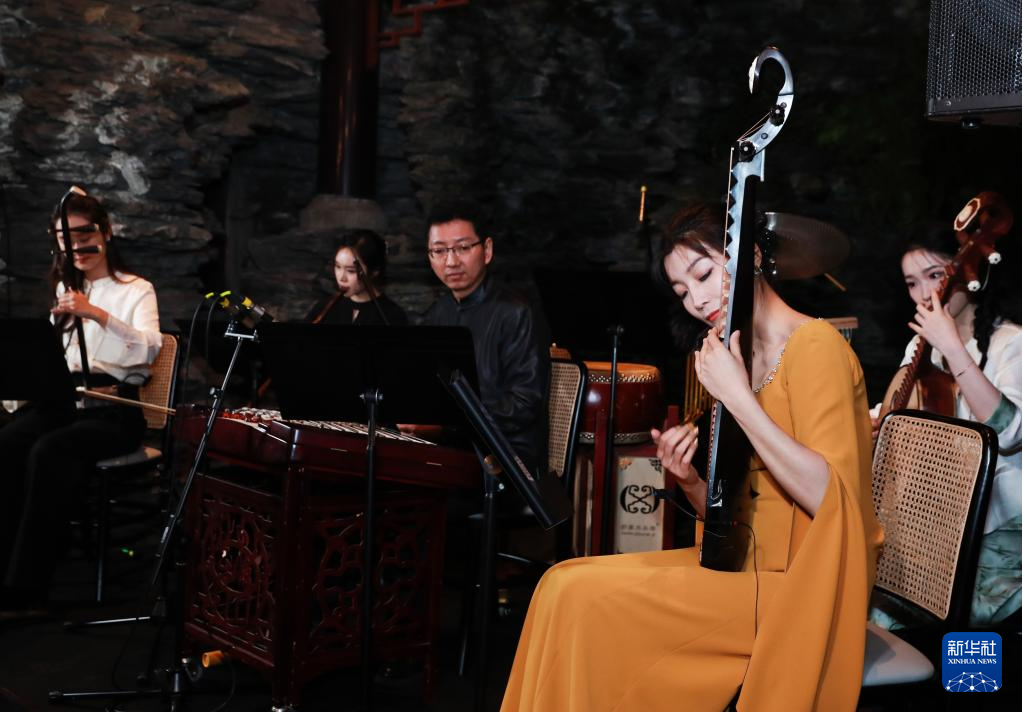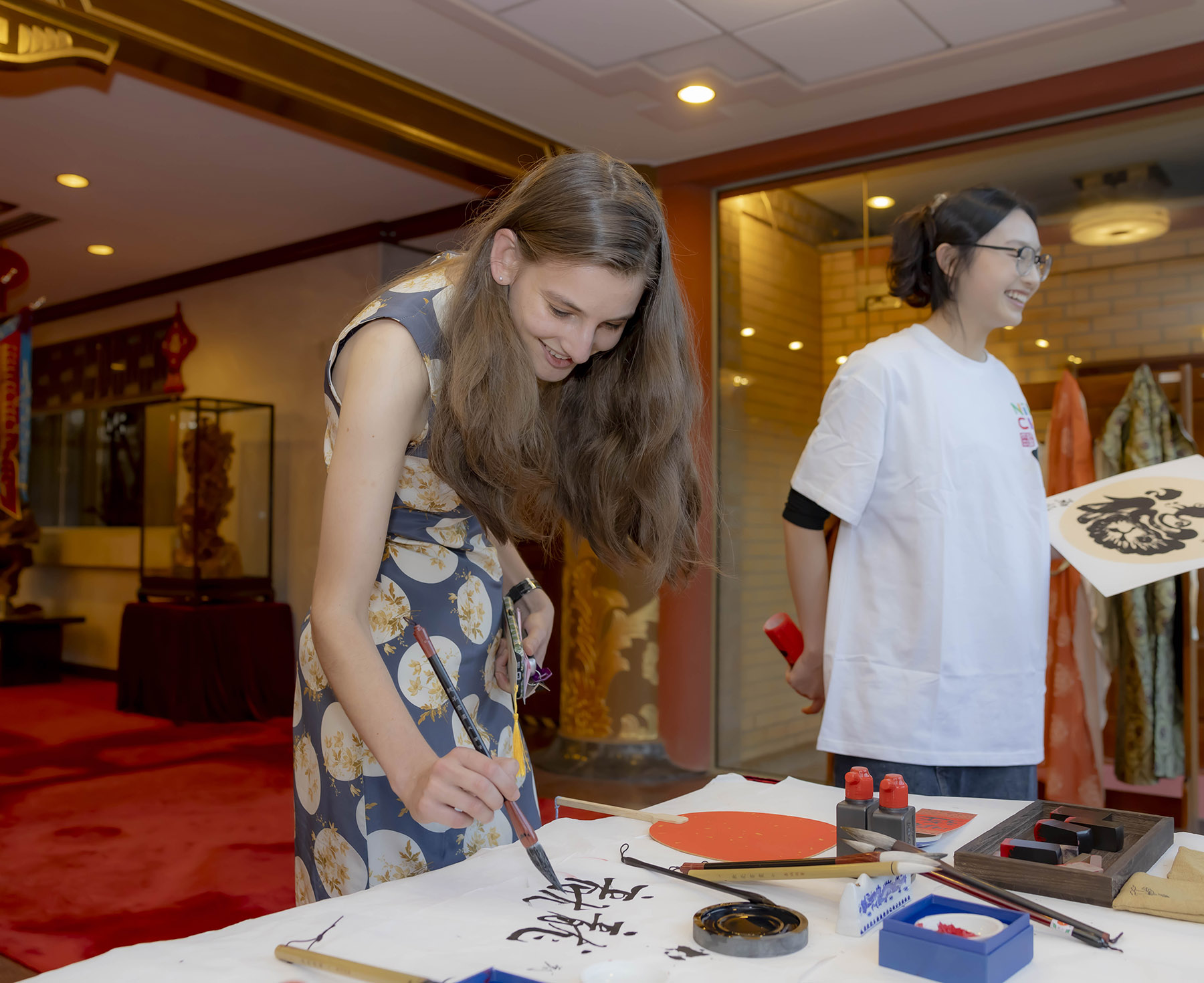Academics seek renewed backing for China studies programs in Australia to bridge gap in knowledge

The past 20 years have seen a steady decline in the number of Australian students enrolling in China studies, fueling concern among academics that Australia is slipping behind in efforts to better understand its biggest trading partner.
The drop in enrollment of Australian students has taken place as research grants for China studies and academic exchanges have fallen.
In a letter to the Australian Research Council in May, 60 China Studies scholars from 22 universities in Australia expressed concern about the decline in funding grants.
The letter cited the 2023 “Australia’s China Knowledge Capability” research report, which said there are “serious questions” about generating “direct knowledge of China, informed by world-class understanding of how China operates”.
“Australia’s capacity to produce cutting edge research on China is currently at crisis point, precisely at a time when that knowledge is most sorely needed,” the letter said.
In the 1990s, Australia produced “outstanding China scholarship” that was recognized internationally, the letter noted.
One of the letter’s signatories was Australian Sinologist Colin Mackerras, professor emeritus at Griffith University in Australia and a fellow of the Australian Academy of Humanities. Mackerras said in an interview with China Daily that it is “terribly sad” to see how far China Studies had declined in Australia.
“Education builds better relations between nations. It goes without saying,” said Mackerras, who for more than 60 years has been at the forefront of China-Asian studies in Australia and has also frequently taught in China.
“Through education you get an understanding of the culture and history of a people. In turn, this helps build bridges between people,” he added.
In June, the Colin Mackerras Chair in Australian Studies Program was established in Beijing to honor the professor’s contribution to the educational and intellectual exchanges between China and Australia.

The program was jointly launched by the Australian Studies Center at Beijing Foreign Studies University, where Mackerras has taught multiple times since the 1960s, and the Foundation for Australian Studies in China.
While academics in Australia are lamenting the declining interest in China Studies, the reverse is true in China. Australian Studies programs at Chinese tertiary institutions have been flourishing in recent decades.
From humble beginnings in the 1980s, there are nearly 40 Australian Studies centers at universities throughout China — one of the highest concentrations in the world.
“It is quite remarkable,” said the University of Canberra’s Richard Hu, joint editor of the book How Australia is Studied in China.
“China has arguably the largest community of Australian Studies in the world,” the professor told China Daily.
However, not much is known about this phenomenon, including its emergence, rationale, interests, influences, and the implications for strategic Australia-China engagement in a region of increasing challenges and uncertainty.
The book is a collection of essays by leading academics which, Hu says, goes some way to unpacking how Australia is taught, learned, researched, communicated, and promoted in China.
“There are multiple reasons why Australian Studies has become so popular in China,” Hu said. “They range from historical to cultural reasons. Language is also another reason. Australia is an English-speaking country, and English is very popular in China so Australian Studies is a good fit,” he said.
The historical reasons stem from when China began to open its doors to the world in the 1970s, Hu said.
In 1972, Australia, led by then prime minister Gough Whitlam from the Labor Party, established diplomatic relations with the People’s Republic of China.

Cultural exchanges
The following year, Australia opened its first embassy in the People’s Republic.
The Australian and Chinese governments subsequently signed a cultural exchange agreement, and in 1979 China sent nine scholars to study at the University of Sydney, Hu said.
The scholars were Du Ruiqing, Hou Weirui, Hu Wenzhong, Hu Zhuanglin, Huang Yuanshen, Long Rijin, Qian Jiaoru, Wang Guofu and Yang Chaoguang. They came from some of the most prestigious universities in Beijing, Shanghai, Nanjing, Xi’an, Suzhou, and Chongqing.
They were all awarded a Master of Arts in Australian literature and linguistics from the University of Sydney, with their graduation ceremony featured in the pages of the Sydney Morning Herald newspaper on Jan 9, 1981.
“These scholars took this knowledge back to China and became leaders of English education in China,” Hu said. “Because of their influence they laid the groundwork for Australian Studies in China.”
Australian Studies programs in China have become a model for other countries to follow, he said.
What do Chinese students gain from Australian Studies?
“They gain cultural literacy and language capability,” Hu said. “At the same time, they learn Australian history, literature, culture and indigenous history — all elements to better understand a people.”
One Chinese professor, Li Yao, has translated 50 Australian novels, including some by the country’s indigenous writers, into Chinese over the past 40 years, Hu noted.
“I tell some of my Australian colleagues that Patrick White and Henry Lawson are read more in China than Australia,” Hu said of the two renowned Australian authors.

Cui Xuehai, a faculty member at the East China University of Political Science and Law’s School of Foreign Studies in Shanghai, studied for his doctorate at Western Sydney University from 2018 to 2022.
Cui did a comparative study of two novels — A Journey to Steppe Mongolia by Uljiburin, an author from the Inner Mongolia autonomous region, and Carpentaria by Alexis Wright, an Australian Aboriginal writer.
“It is the shared similarities and nuanced differences of these two works that offer insights into why Australian Studies matter for us,” Cui told China Daily.
“In their unique ways, both authors rework the major language that their novels are written in, to represent or reflect the language, culture, mythology … of their distinctive cultures.”
The two works look at different forms of oral traditions that have historically helped with the intergenerational transfer of knowledge and wisdom in both China and Australia.
“Such a comparison illuminates many aspects of a strengthened unification among the many ethnic groups in China while maintaining their diverse linguistic and cultural heritages,” Cui added.
He said it is important for young people in China to take Australian Studies to enhance ties between the two nations, as “knowledge of another culture and its people always precedes understanding of it”.
Cui cited Australian and Chinese media coverage of bush fires that ravaged areas of Australia as an example of differing perspectives on the relationship between humans and nature.
“While the Chinese media was more concerned with how the natural disaster affected flora and fauna, the Australians seemed to place more emphasis on how mankind influenced living things by causing phenomena such as global warming,” Cui said.
He views Australia as a rapidly rising country geographically close to China, with the Chinese economy, culture and national strategies growing in importance.

Economic interest
Cui said it is in Australia’s interests to build friendlier and closer ties with China. “So, it is very worthwhile for Chinese students to do Australian Studies and be dedicated to it,” he said.
Australian Aboriginal culture is incredibly rich and diverse, encompassing a wide range of traditions, languages, and art forms, Cui added.
“It is one of the oldest continuous cultures in the world, with a history that spans over 50,000 years,” he said.
“Its key feature, as represented in literature, is its deep spiritual connections to the land — a fundamental concept in Aboriginal spirituality called the ‘Dreamtime’.”
There has been a boom in Australian Studies in China in recent years, said Wang Guanglin, a professor at the Australian Studies Centre at the Shanghai International Studies University.
However, Australian Studies started relatively late in China compared with study of the United Kingdom and the United States.
The popularity of Australian Studies is the result of several factors, Wang said. Australia is located in Asia and has close proximity to China, and it is in the antipodean country’s economic interests to be on good terms with China.
The Australian Studies Center has established very good relations with counterparts in Australia, Wang said.
Professor David Goodman, director of the China Studies Centre at Sydney University, said that all 84 of the center’s PhD students were from overseas, with 82 Chinese nationals.
“The course brings together the vast variety of experiences in China such as social sciences, humanities and engineering,” Goodman said.
Wang’s center in Shanghai has organized the translation of classic Australian novels into Chinese, and participated in events such as talks between the Chinese author Mo Yan, who was awarded the 2012 Nobel Prize in literature, and South African-Australian novelist and essayist J.M. Coetzee.
Angela Lehmann, chair of the Foundation for Australian Studies in China, said Australian Studies programs have become a “strong network” for research and teaching in the Chinese university sector. These studies have expanded since the 1980s with support from the Australia-China Council and the foundation.
“Good academic relations exist between Australian and Chinese figures, and the research, publications and translations emerging in China have been increasingly significant over recent years,” Lehmann told China Daily.
“These centers have wide-ranging interests from Australian and comparative literature and cultural studies to economics and trade, political systems, environmental studies, gender, indigenous studies, social sciences and more.
“Some centers offer courses and programs, and others are more focused on research activities and public events.”
There are an estimated 250 scholars in China currently involved in teaching and doing research on Australia, and many more students taking part in undergraduate or postgraduate courses linked to Australian Studies.
“The popularity has been driven by the experience of leading scholars who spent time in Australia, who came back to China and developed courses to teach and build a new generation of scholars with an interest in Australia,” Lehmann said.
“Initially, the focus of many Australian Studies centers was on literature and translation, as English Studies departments often were linked to those with an interest in Australia.
“Now we are seeing the diversification of disciplines that these scholars are engaging with. The community has grown in terms of numbers, but also in breadth — more scholars (are) studying a wider range of topics.”
Lehmann said Australian Studies enable students in China to learn and engage with Australia.
“Many of these students may not otherwise have the opportunity to learn about Australia,” she added.
Contact the writers at karlwilson@chinadailyapac.com


